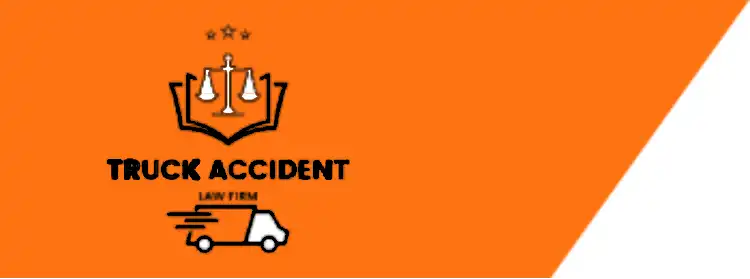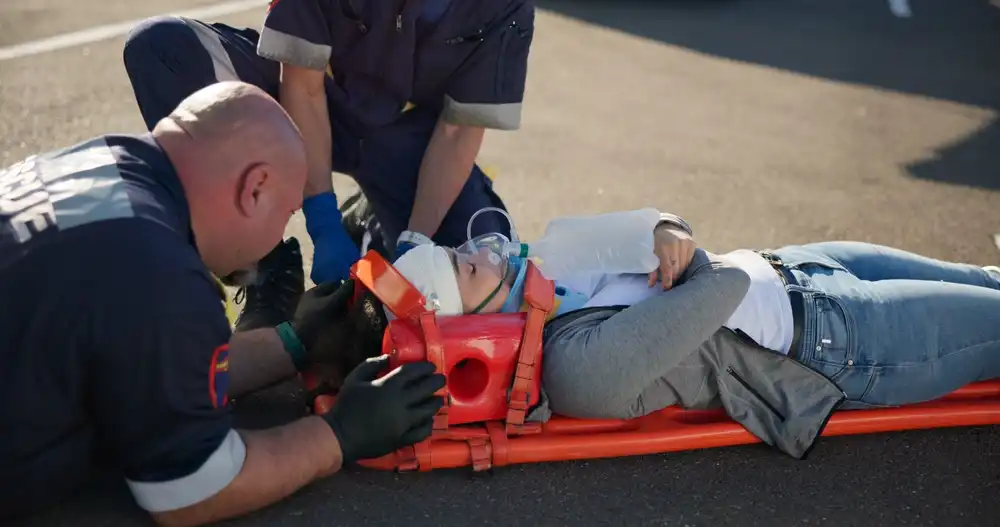Truck accidents are some of the most devastating types of vehicle collisions on the road due to the sheer size and weight of commercial trucks. Whether you’re driving a passenger vehicle or riding a motorcycle, a truck accident can result in severe injuries that require long-term treatment and rehabilitation.
In this blog, we’ll explore the common injuries caused by truck accidents and provide you with key information on how to recover physically, financially, and emotionally. Whether you’re a victim or simply want to be more informed, understanding these injuries and recovery processes can make a huge difference.
1. Traumatic Brain Injuries (TBI)
Traumatic brain injuries (TBI) are among the most serious injuries in truck accidents, especially if there’s an impact with the truck’s cargo or the vehicle rolls over.
Symptoms of TBI
-
Headaches
-
Memory loss
-
Nausea and vomiting
-
Difficulty concentrating
-
Confusion or mood changes
Recovery from TBI
Recovery from a TBI depends on the severity of the injury. Mild cases may improve with rest and time, but moderate to severe TBIs require immediate medical intervention, which may include:
-
Hospital care for emergency treatment
-
Physical therapy, speech therapy, and cognitive therapy to regain lost skills
-
Ongoing monitoring and specialized rehabilitation
Long-term effects of TBI can vary, and many people experience cognitive impairments, emotional difficulties, and physical disabilities. Support from loved ones and professionals is often essential to full recovery.
2. Spinal Cord Injuries
Spinal cord injuries are another common and potentially life-altering injury caused by truck accidents. The impact of the crash can damage the spine, resulting in either partial or full paralysis.
Symptoms of Spinal Cord Injuries
-
Loss of sensation or paralysis in the limbs
-
Inability to move certain parts of the body
-
Difficulty breathing or controlling bladder/bowel function
-
Numbness, tingling, or weakness in the limbs
Recovery from Spinal Cord Injuries
The recovery process for spinal cord injuries can be lengthy and involves:
-
Surgical intervention may be necessary to stabilize the spine or relieve pressure on the spinal cord.
-
Physical therapy and occupational therapy to improve mobility and independence
-
Assistive devices like wheelchairs or braces to help regain functionality and autonomy
-
Psychological counseling and emotional support are also often needed to help individuals adjust to life with a spinal injury.
Recovery varies depending on the level and severity of the injury, but even in cases of complete paralysis, modern medical treatments and rehabilitation can greatly improve quality of life.
3. Broken Bones and Fractures
The force of a truck accident can cause broken bones and fractures in almost any part of the body. Common fractures in truck accidents include broken arms, legs, ribs, and pelvis.
Symptoms of Fractures
-
Intense pain at the injury site
-
Swelling and bruising
-
Deformity (bone may appear out of place)
-
Inability to move the affected limb
Recovery from Broken Bones
Treatment for fractures depends on the location and severity of the injury:
-
Cast or splint: For simple fractures, the bone is often immobilized with a cast or splint, allowing it to heal naturally.
-
Surgery: Severe fractures may require surgery to realign the bone, insert metal pins, screws, or plates to stabilize the fracture.
-
Physical therapy: After the bone has healed, physical therapy is essential to restore strength, mobility, and function.
While fractures often heal completely, some individuals may experience lingering pain or stiffness in the affected area, especially if the fracture was particularly severe.
4. Internal Injuries
Internal injuries, such as damage to the organs (liver, lungs, kidneys, spleen, etc.), bleeding, or punctured organs, are common in truck accidents. These injuries can be life-threatening, especially if not identified immediately.
Symptoms of Internal Injuries
-
Abdominal pain or swelling
-
Difficulty breathing or shortness of breath
-
Chest pain
-
Blood in urine or stool
Recovery from Internal Injuries
-
Surgery is often necessary to repair damaged organs or stop internal bleeding. For example, spleen removal may be required if the spleen is ruptured.
-
Hospital care may involve monitoring vital signs, administering fluids, and providing supportive treatments like blood transfusions.
-
Long-term care can include rehabilitation and follow-up visits to ensure the organs are functioning properly.
Prompt medical attention is critical in internal injury cases, as untreated internal bleeding or organ failure can lead to severe complications or even death.
5. Whiplash and Neck Injuries
Whiplash is a soft tissue injury to the neck caused by sudden acceleration or deceleration in an accident. In truck accidents, the high impact can cause significant whiplash injuries, which can affect the neck, back, and shoulders.
Symptoms of Whiplash
-
Neck pain and stiffness
-
Headaches
-
Dizziness
-
Difficulty moving the neck
-
Shoulder pain
Recovery from Whiplash
Most people with whiplash can recover with rest, ice packs, and pain medications. However, more severe cases may require:
-
Physical therapy to improve neck mobility and strength
-
Massage therapy to reduce muscle tension
-
Chiropractic care to realign the spine and neck
For some, whiplash symptoms can last for months, and ongoing therapy may be needed to manage chronic pain.
6. Psychological Injuries
Truck accidents can also result in psychological trauma, such as post-traumatic stress disorder (PTSD), depression, or anxiety. The emotional toll of being involved in a traumatic crash can be long-lasting, affecting an individual’s mental health and well-being.
Symptoms of Psychological Injuries
-
Flashbacks or nightmares about the accident
-
Feeling anxious, nervous, or on edge
-
Avoiding situations or places associated with the accident
-
Difficulty concentrating or sleeping
Recovery from Psychological Injuries
Recovery from psychological injuries requires professional mental health support:
-
Counseling or therapy: Cognitive-behavioral therapy (CBT) and trauma-focused therapy are commonly used to help individuals cope with PTSD and other emotional distress.
-
Medication: Anti-anxiety medications or antidepressants may be prescribed to manage symptoms of depression and anxiety.
-
Support groups: Group therapy or peer support groups can help individuals feel less isolated and connect with others who have experienced similar trauma.
Emotional Healing
While the physical scars may heal over time, psychological injuries can take longer to address. It’s important to seek mental health care early to prevent long-term complications.
7. Legal Considerations for Truck Accident Victims
In addition to recovering physically and emotionally, truck accident victims may be entitled to compensation for their injuries. This can cover medical expenses, lost wages, pain and suffering, and emotional distress. A truck accident attorney can help you navigate the legal process and ensure that you get the compensation you deserve.
A. How an Attorney Can Help
A skilled attorney will:
-
Investigate the accident and gather evidence
-
Deal with insurance companies on your behalf
-
Work to prove liability and secure a fair settlement or court judgment
8. Conclusion
Truck accidents can cause a range of serious injuries, from traumatic brain injuries to psychological trauma. Recovery from these injuries requires medical intervention, rehabilitation, and emotional support. Additionally, seeking legal help from a qualified truck accident attorney ensures that your rights are protected and you receive the compensation you deserve for medical bills, lost wages, and pain and suffering.
If you’ve been involved in a truck accident, make sure to get the care you need and consult an attorney who can guide you through the recovery process, both physically and legally. Stay safe and remember, help is available.

